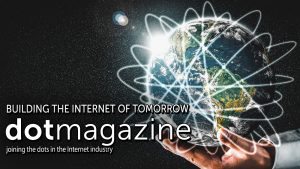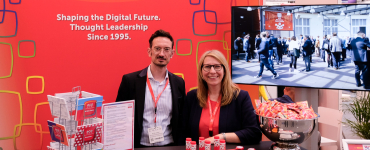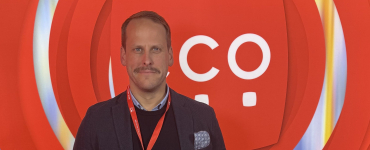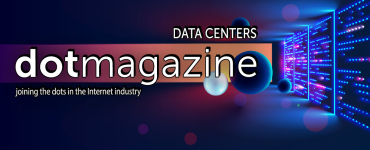In drawing to the close of 2023 and starting to contemplate on our New Year’s resolutions, it makes great sense to cast our minds on the Internet of tomorrow. In exploring the dynamics that are shaping our world’s evolving technological landscape, multiple factors demand our attention and call for reliability, top-tier innovation, and open dialogues. One clear cornerstone in forging the Internet’s reliable future is to have digitalization and sustainability going hand in hand. What’s therefore good to hear is that the Internet and sustainable digital technologies are increasingly gaining a shared harmony, with this acknowledged to a growing extent by Europeans. For example, based on recent surveys, eco’s Managing Director Alexander Rabe reveals that more than half of young adults in Germany believe that digital technologies can help in tackling the climate crisis. To achieve this, Alexander not only accentuates how important it is to expand high-performance digital infrastructures and connected mobility, but also just how essential it is to have the EU as a strong technology hub for a wide range of innovations.
In this month’s dotmagazine, we also zoom in on two current EU innovations: Firstly, Tobias Schubert from Corning draws attention to an ambitious European goal: to gain universal gigabit-speed access by 2030, with the accelerated deployment of fiber optics being imperative in upgrading sustainability. In the pursuit of high-speed connectivity, cost efficiency, and environmental responsibility, Tobias reveals surprising CO2 savings linked to diverse fiber installation methods, paving the way for a faster, greener future. Secondly, Ralf Schädel showcases the EU Data Act as a further EU innovation. As was pinpointed at eco’s recent Car Repair 4.0 webinar, this is making a significant stride toward enhancing data sharing and transparency, and boosting the equitable access to vehicle data, thereby fostering collaboration and data distribution in the automotive industry.
Throughout the EU, an additional pivotal force in advancing reliability is the NIS2 Directive on cybersecurity. One core role in this directive is the domain name system (DNS), with a reliable, resilient, and secure DNS acknowledged to set the groundwork for maintaining the integrity of the Internet. However, as spelt out by Lars Steffen and Thomas Rickert from eco, Article 28 of the directive has a pronounced impact on the domain name ecosystem, with the wide range of procedures for validating registrant data leading to a high level of complexity. As such, the success of the NIS2 Directive in the domain industry depends on enabling flexibility and maintaining an open dialogue between industry stakeholders and regulators.
Given that DNS is a pivotal and foundational point of the entire global digital transformation, what is also highly logical is to have a greater level of diversity within the complete domain industry. Gender equality, for example, leads to better problem-solving and innovation, with Vanda Scartezini & Cheryl Langdon-Orr from the DNS Women network working solidly towards empowering the future of the domain industry across the globe with DNS women. In reflecting on their network’s achievements, they’re excited for the future, aiming to further expand, connect, and highlight women pioneers.
A further exciting foresight of the global Internet relates to the immersive tactile experience, with this sense of touch or physical interaction with objects and surfaces also set to raise the bar. Dr. Thomas King, CTO of DE-CIX, delves into the challenges faced by infrastructure providers as they shape a digital landscape where the “virtual” seamlessly intertwines with the “real”. With next-generation IXs set to facilitate data exchange at the lowest latencies, Thomas notes how DE-CIX is “constructing the backbone of a digital reality that promises to reshape how we experience and interact with the world around us.”
This seamless fusion of the virtual and the real not only transforms individual experiences but also fuels a broader interconnection within global telecommunications. In a bold stride towards revolutionizing such telecommunications, Svetoslava Bancheva from Neterra, a telecommunications provider, has embraced the transformative principles of the Open API (Application Programming Interface) Manifesto, spearheaded by TM Forum.
In conclusion: As we now stand at the nexus of innovation, collaboration, and sustainability, it is evident that the future of technology rests on our ability to harmonize these elements, ensuring a reliable, innovative, and interconnected digital landscape for generations to come.




